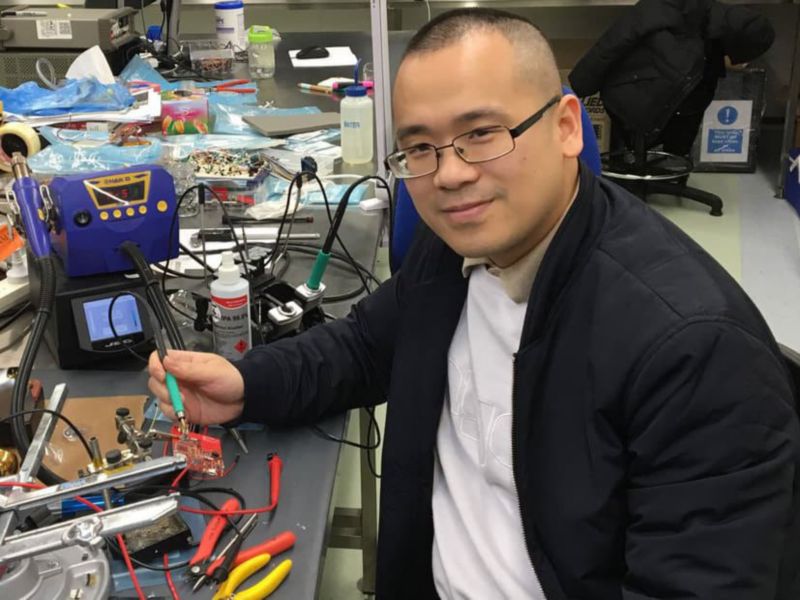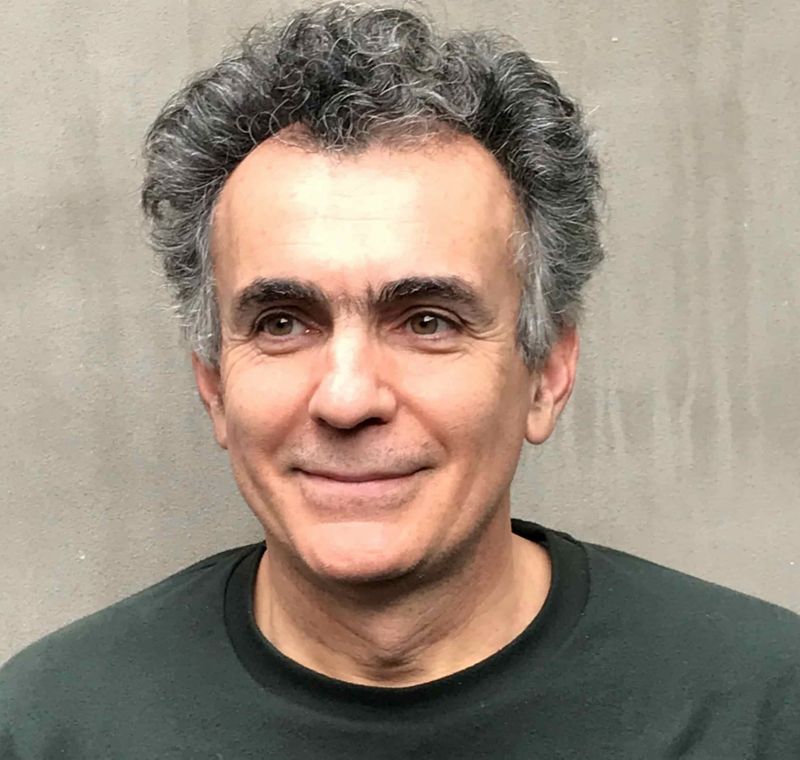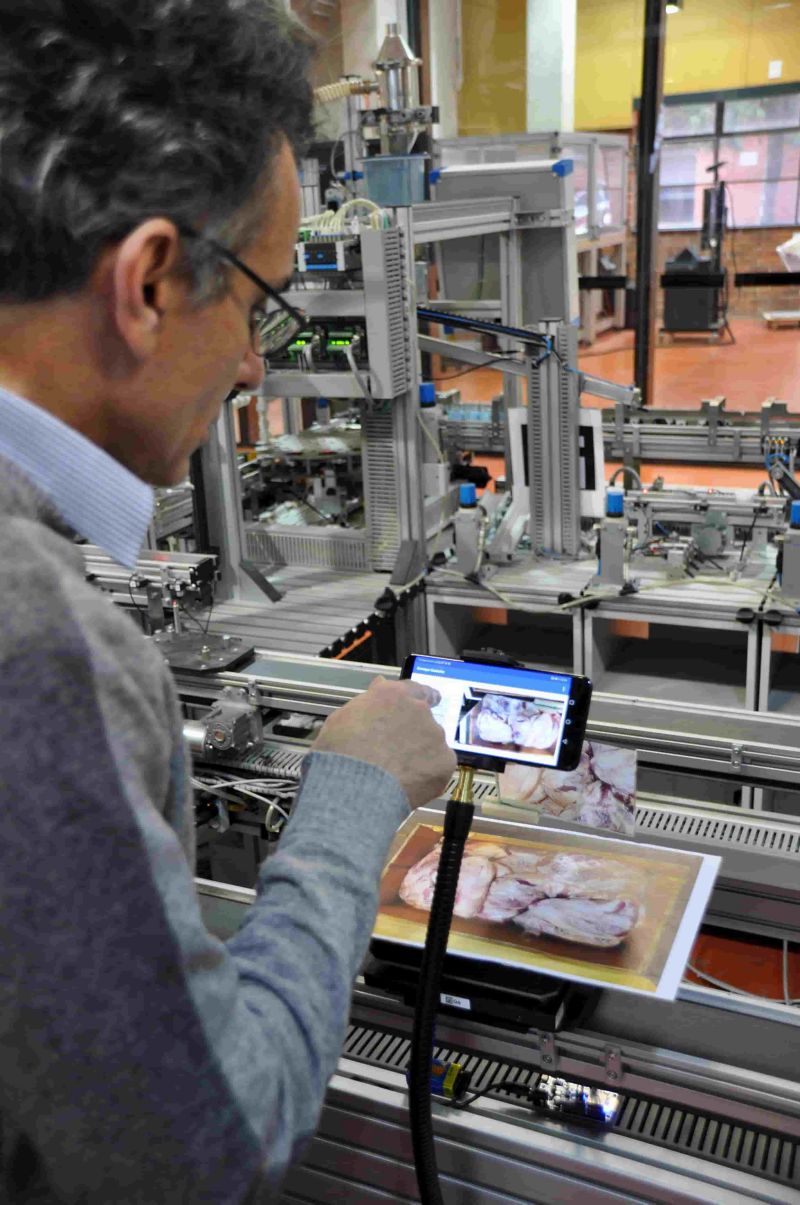Choosing a postgraduate engineering course at RMIT will help you develop internationally-recognised skills in the area that interests you most, and give you the experience to become a leader.
RMIT ranks among the world’s top 100 universities for civil and structural engineering, as well as electrical and electronic engineering, and is in the top 150 in chemical engineering and mechanical, aeronautical and manufacturing engineering.
We asked Associate Professor Jianzhen Ou and Professor Alireza Bab-Hadiashar to tell us about the emerging skills in demand right now and how their students are getting the skills and experience to advance their careers.

Use emerging technologies in Electrical and Electronic Engineering
Associate Professor Jianzhen Ou teaches in the Master of Engineering (Electrical and Electronic Engineering).
“The engineering skills in demand right now are skills to understand the emergence of the new technologies shaping our world: the internet of things, 5G and artificial intelligence (AI),” Ou says.
“This requires our students to learn more sophisticated and challenging fields beyond conventional electronics. Both 5G and AI demand the driving electronic circuit to be more compact and with higher performance. We’re making sure our students are skills-ready in multiple disciplines: electronic engineering, chemistry, physics, micro-nano engineering, and biology.
“The course structure is practical and closely related to the industry, which makes students ready for the job market. As lecturers, we get opportunities to incorporate some of my research discoveries into the course content and stimulate students’ interest in the area.
“Students have adapted well with the shift to virtual learning. We’ve made online laboratorial and tutorial sessions flexible, introduced new education software for the lab sessions to ensure students get similar learning outcomes, and provided pop-up consultation sessions.
“A recent industry project that final year postgraduate students worked on was an ingestible capsule containing miniature gas sensors, electronic circuits and antenna for profiling gases along the human gut. The device can be swallowed and excreted from the body via normal bowel movement. Since the human gut gases can be associated with their health state, we then use the capsule to assist the gastroenterologist to diagnose the diseases and disorders.”
Get the skills in demand in Robotics and Mechatronics Engineering
Professor Alireza Bab-Hadiashar is an internationally-recognised researcher in computer vision and intelligent robotics. As the program manager for the Master of Engineering (Robotics and Mechatronics Engineering), he assists students in finding projects that suit their interests.
“Students connect with postdoc research fellows or PhD students or academics, so they get opportunities to interact with different expertise levels,” Bab-Hadiashar says.
“Two growing sectors are the defence industry and agtech. With government investment in defence, and improving automated technology in food production, those areas are demanding skilled graduates.
We’re currently working with a SME in machine automation in food production who students are interning with. Students can then go on to work for large multinationals who do a lot of food production like Nestle and Mondelez.”

“Our facilities are world class. Students use our mechatronics spaces where they can build and test their prototypes and projects, and can call on our workshop facilities where technicians will build them sophisticated parts. RMIT’s Advanced Manufacturing Precinct has great facilities for students building prototypes out of plastic or metal, using 3D printers and additive manufacturing technologies.
“A silver lining of studying from home this year has been that students have developed good presentation skills. Every week they come to class with slides prepared to present their ideas and research, so they’re working on their pitch, which will be helpful in their careers.
“With Industry 4.0, increasing digitisation and the move towards intelligent automation, there’s a demand for skills to use technology like mechatronics, sensing and robotics. The Master’s degree responds to demand in the area for skills in automation.
“A recent project with Ford and the Australian Government involved inspection of rivets. When you use light materials like aluminum to build a car, you have to use rivets manually, so we’re using CT scans to take 3D internal pictures of industrial parts and trying to automate the process.”
